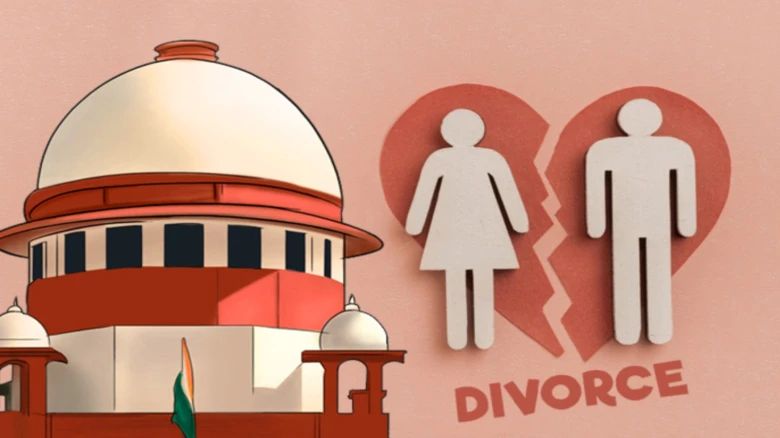International

The Supreme Court ruled on Monday that it could grant a divorce based on the grounds of "irretrievable breakdown" of marriage...
Digital Desk: The Supreme Court ruled on Monday that it could grant a divorce based on the grounds of "irretrievable breakdown" of marriage by invoking its special powers under Article 32 of the Constitution.
A Constitution Bench comprised of Justices S K Kaul, Sanjiv Khanna, A S Oka, Vikram Nath, and J K Maheshwari stated that such an exercise of power "will not violate the principles of public policy."
The court also ruled that it could waive the six-month waiting period, which is mandatory before a couple approaches a court for divorce by mutual consent, subject to certain conditions.
This comes only days after a two-judge panel of the court ruled that irretrievable breakdown of a marriage can be regarded as cruelty under the Hindu Marriage Act, 1955, and can be grounds for divorce.
The April 27 decision came while deciding a case in which a couple had only lived together for four years, after which they had been living apart for 25 years and had various civil disputes between them. The court ruled that "a marriage that has irretrievably broken down, in our opinion, spells cruelty to both parties because in such a relationship, each party treats the other with cruelty. Therefore, it counts as grounds for divorce under Section 13(1)(ia) of the Act."
It added that although "irretrievable breakdown of a marriage may not be a ground for dissolution of marriage under the Hindu Marriage Act, but cruelty is."
"A marriage can be dissolved by a divorce decree, for example, if the other party has treated the petitioner cruelly after the marriage has been solemnized. A marriage relationship that has only grown more bitter and hostile over the years, in our opinion, does nothing but inflict pain on both parties. To keep the façade of this failed marriage alive would be an injustice to both parties," said the bench in its April 27 judgment.
Leave A Comment